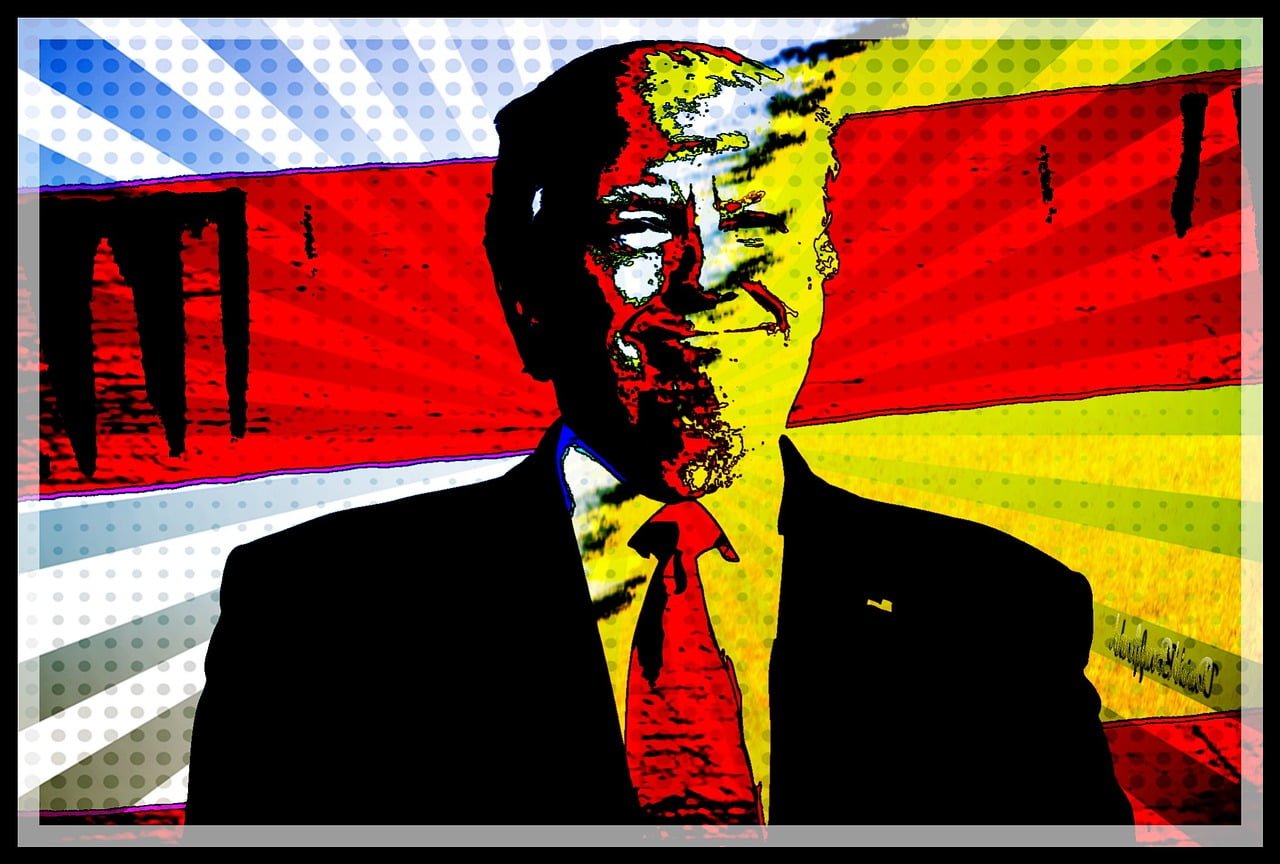The Polish government’s attempt to ban the usage of a historically incorrect term has backfired in the most spectacular way. The country is now in a deep diplomatic crisis, and the expression they wanted to ban has seen a renaissance.
During the Second World War, Nazi Germany occupied nearly all of Europe, building concentration and death camps on the subjugated territories. In them, the occupiers perpetrated the systematic extermination of the occupied countries’ Jewish population as part of the “final solution of the Jewish question,” as well as other nations which the Germans deemed “Untermenschen" (subhumans). 18 million people were sent to the camps altogether, 11 million of whom died.
Every time this expression is used, it sparks off a fierce reaction by the Polish politicians and citizens.
The major death camps — including Birkenau, Treblinka, Sobibor, Kulmhof (Chełmno) and Majdanek — were established on the territories of occupied Poland. This fact is probably the reason for the confusion of the Western media outlets, which often use the term “Polish death camps” when referring to the camps built and run by Germans.
The term is controversial (to say the least) because it falsely implies that the camps were run by Polish people and/or established by the Polish state. Whether the usage of this term is an unfortunate editorial mistake or a genuine conviction that there were some Polish-run death camps during the Second World War is often unclear.
Nevertheless, every time this expression is used, it sparks a fierce reaction by the Polish politicians and citizens. This is entirely justified because — let’s say it clearly one more time — there was no such thing as Polish death camps. The Polish people were actually one of the groups who suffered the most under the German occupation.
Diplomatic and Social Measures to Fight the Term
Poland had been quite successful in eradicating the problematic words from public discourse. In 2012, Barack Obama used the expression while posthumously awarding Jan Karski, a Polish Second World War hero, with the Presidential Medal of Freedom. After a massive outcry from the Polish public and intensive efforts by the Polish diplomats, the American president issued an official apology letter in which he “expressed regret for his error.”
Throughout the years, Polish embassies across the world successfully prompted several media outlets to apologize for using the term including CNN, Die Welt, DPA, and the New York Times. The management of the Times even decided to introduce changes to their stylebook (the technical and stylistic guidelines for authors on how to write their texts) to avoid such mistakes in the future.
A Polish site launched a #GermanDeathCamps campaign, explaining the history.
One of the most important incidents involved the German television channel ZDF, which used the phrase “Polish concentration camp” in 2013. The station refused to apologize, which led to a lawsuit filed by a Holocaust survivor Karol Tendera. The case was won by the plaintiff, and the court stated that his personal rights were violated (the term “Polish concentration camps” used by the station implied that he, as a Polish national, was the perpetrator while, obviously, he was a victim of the Nazi occupants). ZDF had to issue an official apology on their website.
However, the station did everything to apologize in the most indistinct way possible. They hid their statement deep in their website’s menu, and they uploaded it as a picture, so it was impossible to find it through the browser. The lengthy lawsuit was prolonged even more in order to get a proper apology from the station, but the Polish people didn’t feel like waiting.
A Polish site “Żelazna logika” launched a #GermanDeathCamps campaign, explaining the history of the Holocaust and why calling the death and concentration camps Polish is radically inappropriate and completely historically inaccurate. The initiative was a huge success: it appeared on major international media, its hashtag was trending on Twitter, and the activists even appeared on the streets of Berlin, displaying a huge banner with a slogan “Death Camps Were Nazi German” in front of the ZDF headquarters.
Attempt to Penalize the Usage of the Term
So, one can easily agree that Poland did a very good job in spreading historical awareness all around the world, both on a government- and citizen-level. That is, until the recent attempt of the Polish authorities to bring the case to a legislative level and make using the term a criminal offense.
According to the bill, which was recently accepted by both chambers of Polish Parliament:
“Whoever publicly and contrary to the facts attributes to the Polish Nation or to the Polish State responsibility or co-responsibility for the Nazi crimes committed by the German Third Reich, (...) or for any other offences constituting crimes against peace, humanity or war crimes, or otherwise grossly diminishes the responsibility of the actual perpetrators of these crimes, shall be liable to a fine or deprivation of liberty for up to 3 years.”
The authors commented on the project, mentioning the frequent usage of the “Polish death camps” term in Poland and abroad, and the necessity of creating “effective legal tools enabling Polish authorities to conduct a consequent historical policy to prevent falsifying the Polish history and to protect the good name of the Republic of Poland.”
The Streisand Effect
The term “Polish death camps” flooded the Internet.
In 2003, the singer Barbra Streisand tried to conceal the location of her luxurious seaside villa by censoring or deleting the photographs showing the residence and threatening legal action against the people who were posting them on the Internet. It led to precisely the opposite result: the public's attention was drawn to the case, and soon pretty much everybody could learn the exact address of her mansion.
And that’s the same thing that happened in Polish and foreign media after voting on the bill. The term “Polish death camps” flooded the Internet. Aleksander Kwaśniewski, a former president of Poland, said that the bill “destroys years of work” of raising international awareness related to Polish history. The media outlets, whether they want it or not, have to use this “forbidden term” in order to fully report on a story and properly explain the motivation of the Polish legislators. But there are also attempts to willfully capitalize on the trend: for example, one “smart” Polish businessman used the “Polish Death Camps” hashtag to promote his guesthouse on Twitter, hoping it will get some views from people looking at tweets related to the issue.
What makes the case even worse is that the bill leaves much room for interpretation. The term “Polish death camps” doesn’t actually appear in the text itself — it is present only in the authors’ comments justifying the law, which have no legal effect. The bill, as previously stated, penalizes attributing “to the Polish Nation or to the Polish State responsibility or co-responsibility for the Nazi crimes committed by the German Third Reich (...)”
And that’s where the case becomes problematic. While the (co)responsibility of the Polish state for the Nazi crimes is out of the question (since a Polish state didn’t exist during the occupation), there were incidents of Polish people collaborating with the Nazis, and there were Polish people who participated in anti-Jewish crimes.
The damages done in the field of the country's historical policy are irreversible.
This is why the bill has sparked off perhaps the biggest diplomatic crisis of the present government coalition ruling the country. It is feared that the law — if implemented — might lead to attempts to whiten the history of Poland and prosecute people exploring the subject of Polish crimes against Jews.
The voices of concern and criticism came from all around the world, including the US, whose Department of State has issued an official statement related to the bill. “We are concerned draft legislation in Poland regarding crimes committed during the Holocaust could undermine free speech and academic discourse,” states the document. But the fiercest reaction came from Israel. As we read in Newsweek, the Israeli Parliament is ready to launch a bill which will deem Poland a Holocaust-denying country — and which so far has gained the support of 61 of 120 deputies.
Implementing such a decree would be not only devastating to Poland’s international relations but also an unthinkable precedent, taking into account the huge Polish contribution to the fight against Nazism. Poland has given the world heroes such as Witold Pilecki or the aforementioned Jan Karski, and Poles were the most frequent recipients of the Righteous Among the Nations title — an honorific used by Israel to recognize non-Jewish people who risked their lives to save Jews from the Holocaust.
Is there anyone who actually supported the ban, apart from the people behind it? Yes: Ramzan Kadyrov, a brutal dictator and Vladimir Putin’s satrap in the Russian-controlled republic of Chechnya. The proposed law is of interest to Russia because it also penalizes denying crimes of Ukrainian nationalist organizations — which is in line with the Kremlin’s anti-Ukrainian propaganda but not necessarily beneficial for strategic Polish-Ukrainian relations.
On Tuesday, 6th February, Andrzej Duda, the president of Poland, signed the bill and directed it to the Constitutional Tribunal, which will examine its compliance with the Constitution. Regardless of the results of the examination, the damages done in the field of the country's historical policy are irreversible. As usual, with any government action, good intentions resulted in terrible outcomes.
Paweł Piwowar
Paweł Piwowar is a passionate advocate of economic and individual liberty from Poland, cooperating with two NGOs as a filmmaker and project manager. He is currently pursuing his career in journalism and digital news media.
This article was originally published on FEE.org. Read the original article.







